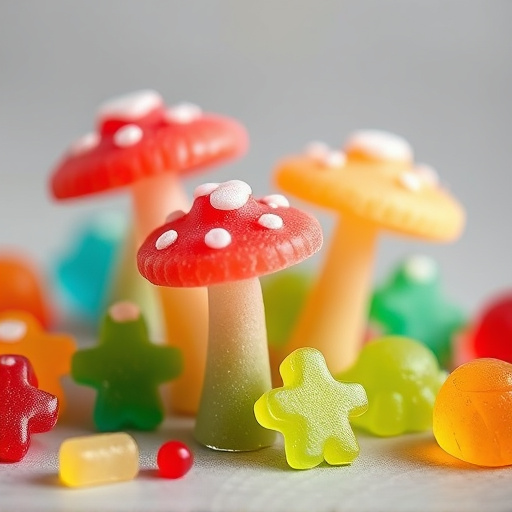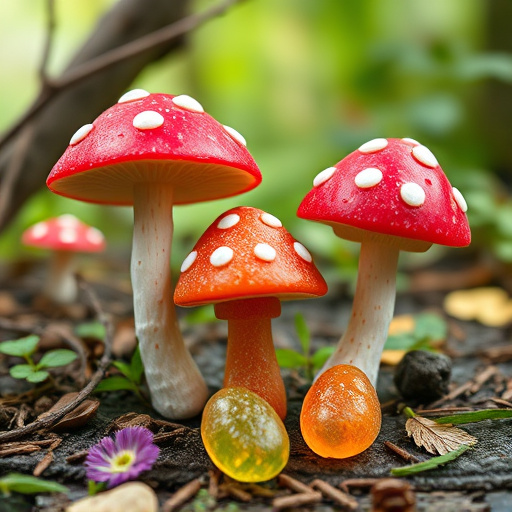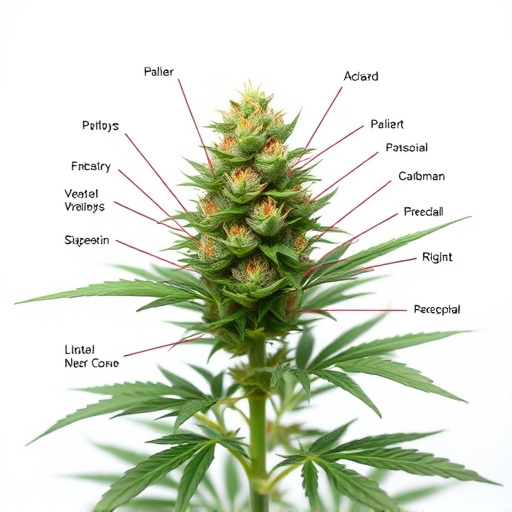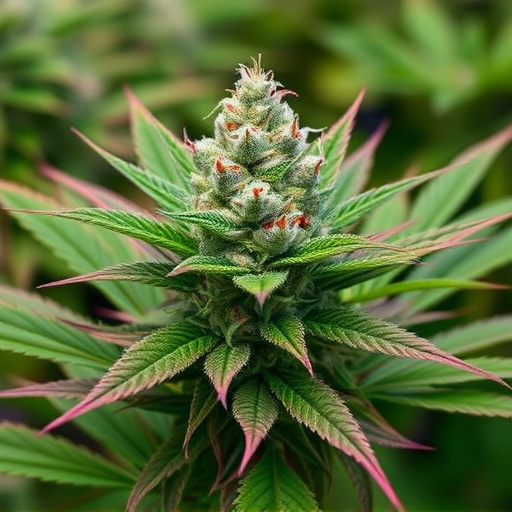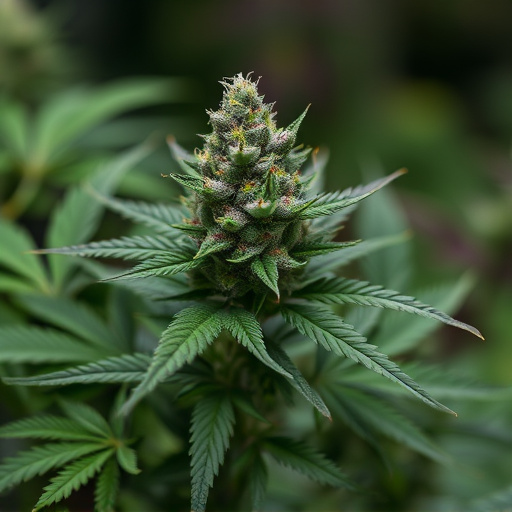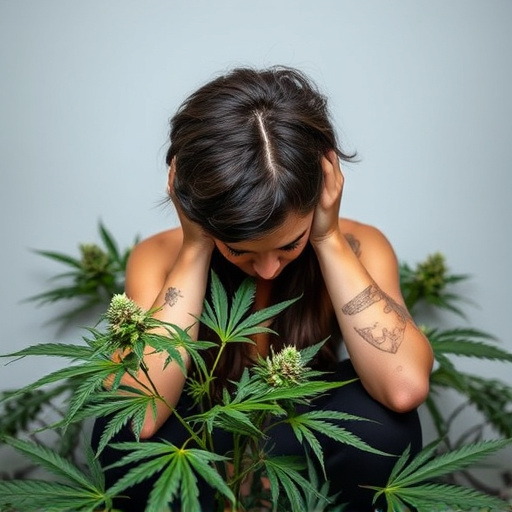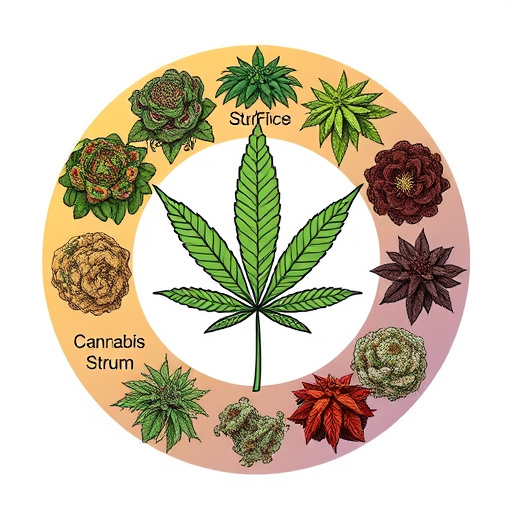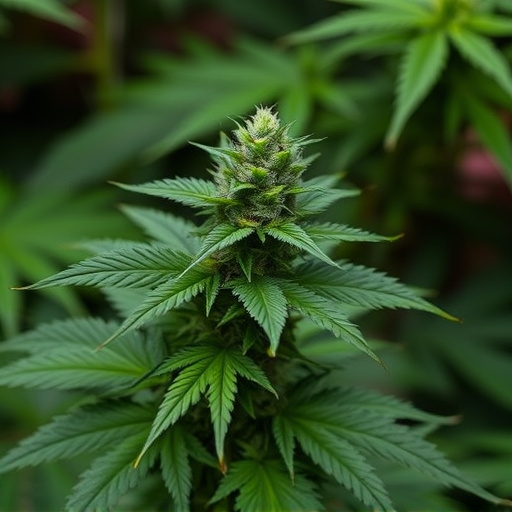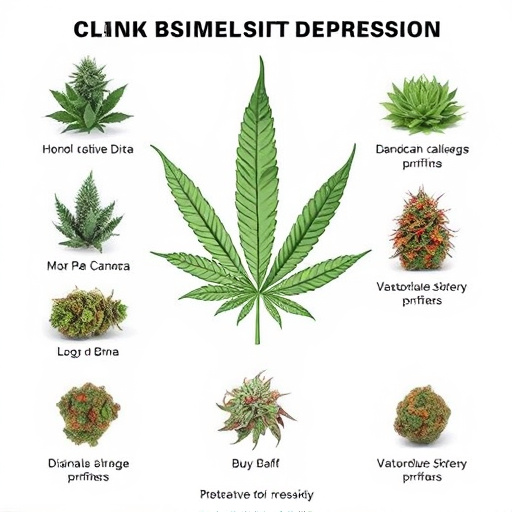Terpenes, aromatic essential oils in cannabis, play a significant role in the therapeutic effects and unique experiences of different strains. Key terpenes like myrcene (earthy, relaxing), limonene (citrusy, uplifting), and linalool (lavender, calming) offer tailored emotional responses for mental health support. Understanding terpene profiles is crucial when selecting cannabis strains for depression management, as these natural compounds interact with cannabinoids to potentially alleviate depressive symptoms through alternative medicine approaches.
In the quest for effective depression management, cannabis has emerged as a potential alternative therapy. A key player in this process are terpenes—aromatic compounds responsible for cannabis’ diverse effects. This article delves into the intricate relationship between terpenes and cannabis, focusing on their role in alleviating depressive symptoms. We explore specific terpene profiles within top cannabis strains known for their effectiveness in managing depression, guiding users towards potential herbal solutions.
- Understanding Terpenes and Their Role in Cannabis
- The Impact of Terpenes on Cannabis for Depression Relief
- Top Cannabis Strains Rich in Terpenes for Managing Depression
Understanding Terpenes and Their Role in Cannabis
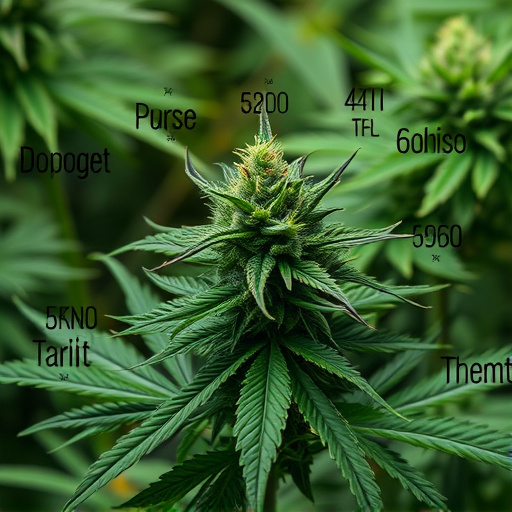
Terpenes, often described as the essential oils of plants, play a pivotal role in shaping the unique experiences associated with different cannabis strains. These aromatic compounds are responsible for the distinct flavors and scents we associate with various cannabis varieties. Beyond their contribution to taste and aroma, terpenes also interact with the cannabinoids present in cannabis, such as THC and CBD, potentially enhancing or modifying their effects. This interplay is particularly relevant when considering cannabis strains for depression, where specific terpene profiles may offer therapeutic benefits tailored to individual needs.
In cannabis, different terpenes can evoke a range of emotional responses. For instance, myrcene, known for its earthy and musky notes, is often associated with relaxation and sleepiness, making it potentially beneficial for managing symptoms of depression. Limonene, with its bright citrus aroma, may uplift mood and reduce anxiety, while linalool’s lavender-like scent has been linked to stress relief and better sleep. Understanding these terpene-cannabinoid interactions can guide users in selecting cannabis strains for depression, leveraging the plant’s natural chemistry to support mental health and well-being.
The Impact of Terpenes on Cannabis for Depression Relief
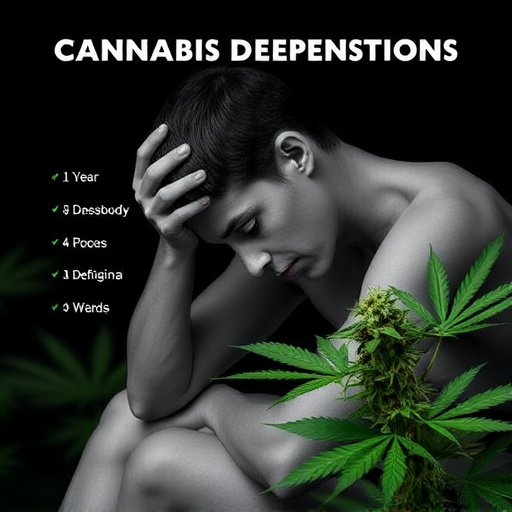
Terpenes, the aromatic compounds found in cannabis, play a significant role in shaping its therapeutic effects, including its potential to offer relief from depression. Among the vast array of terpenes, myrcene and linalool have garnered attention for their calming and mood-lift properties. Myrcene, with its earthy scent, is known to interact with cannabinoid receptors, potentially enhancing the anti-depressant effects of cannabis. This terpene’s ability to cross the blood-brain barrier makes it a key player in managing mental health conditions.
Linalool, often described as having a lavender-like aroma, has been studied for its calming and anxiolytic (anxiety-reducing) effects. When consumed or inhaled, linalool can interact with the body’s natural systems to promote relaxation and alleviate symptoms of depression. Combining these terpenes-rich cannabis strains for depression relief is becoming an increasingly popular approach in alternative medicine, offering a promising avenue for those seeking natural remedies.
Top Cannabis Strains Rich in Terpenes for Managing Depression
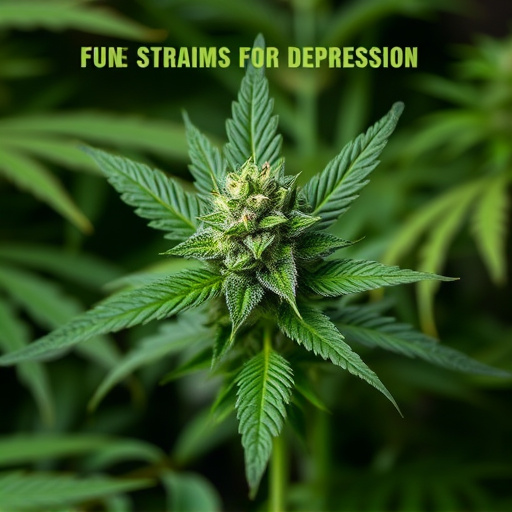
Cannabis has long been recognized for its potential therapeutic benefits, and a significant factor in these effects is the presence of terpenes—volatile organic compounds responsible for the plant’s distinct aromas and flavors. When it comes to managing depression, certain cannabis strains that boast high levels of specific terpenes have shown promise. For instance, Linalool, a terpene commonly found in lavender, has been linked to reduced anxiety and improved sleep quality, making it potentially effective in alleviating symptoms of depression. Strains like Granddaddy Purple and Lavender are renowned for their linalool content.
Another notable terpene is Myrcene, prevalent in strains like Blue Dream and Strawberry Cough. Research suggests that myrcene may help reduce inflammation and act as a mild sedative, contributing to feelings of relaxation and well-being—all beneficial for those dealing with depression. Additionally, Limonene, found in citrusy strains such as Super Lemon Haze, has been associated with improved mood and cognitive function, offering another potential avenue for managing depressive symptoms through cannabis use.
Terpenes, with their diverse effects, play a significant role in shaping the therapeutic potential of cannabis for managing depression. By understanding how these aromatic compounds interact with our bodies, we can make more informed choices when selecting cannabis strains rich in terpenes for depression relief. Incorporating specific cannabis strains into wellness routines may offer natural support for mental health, providing an alternative approach to traditional treatments. Remember that individual responses vary, so consulting professionals and exploring different options is essential in finding the best fit for personal needs.
